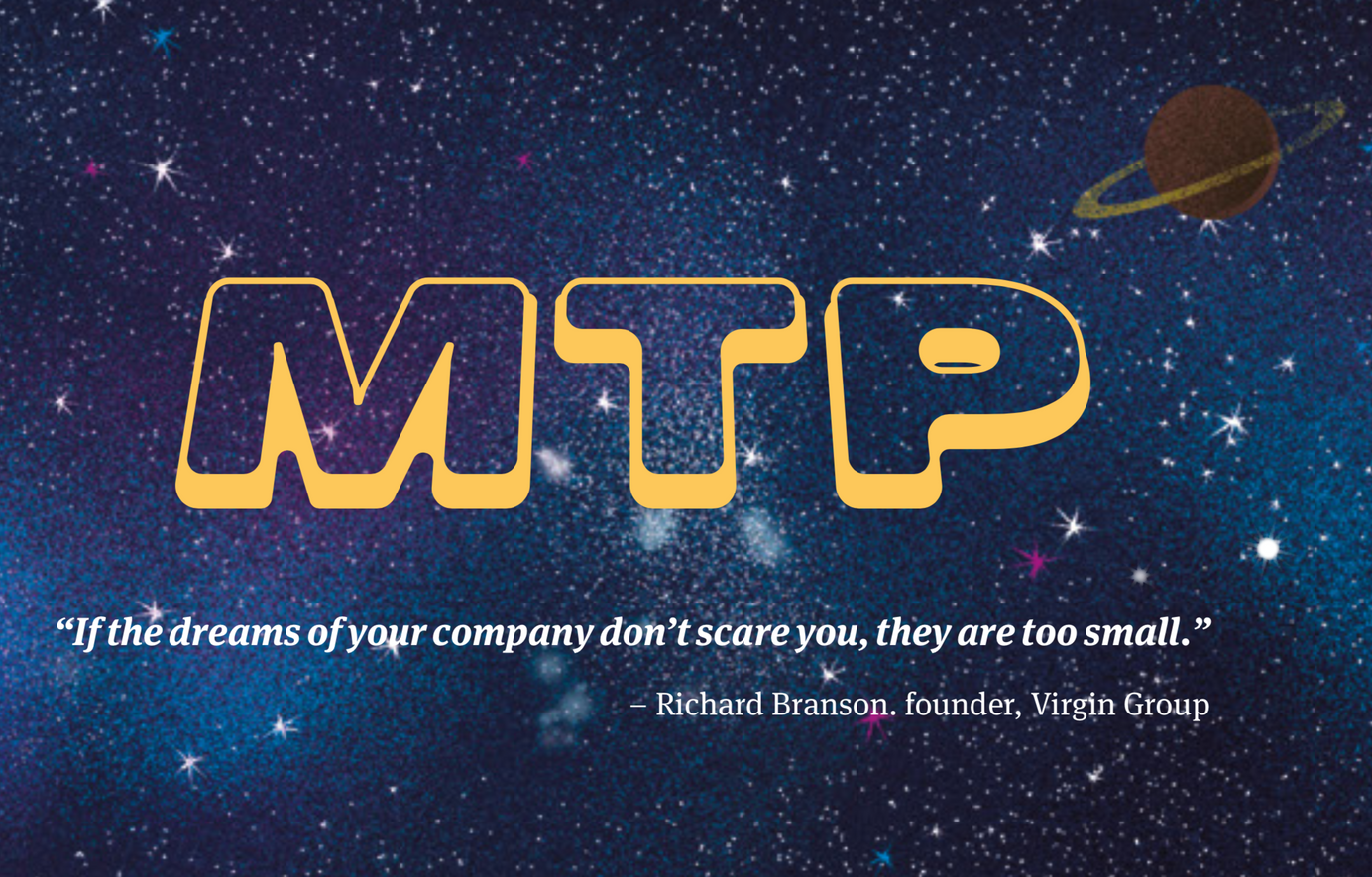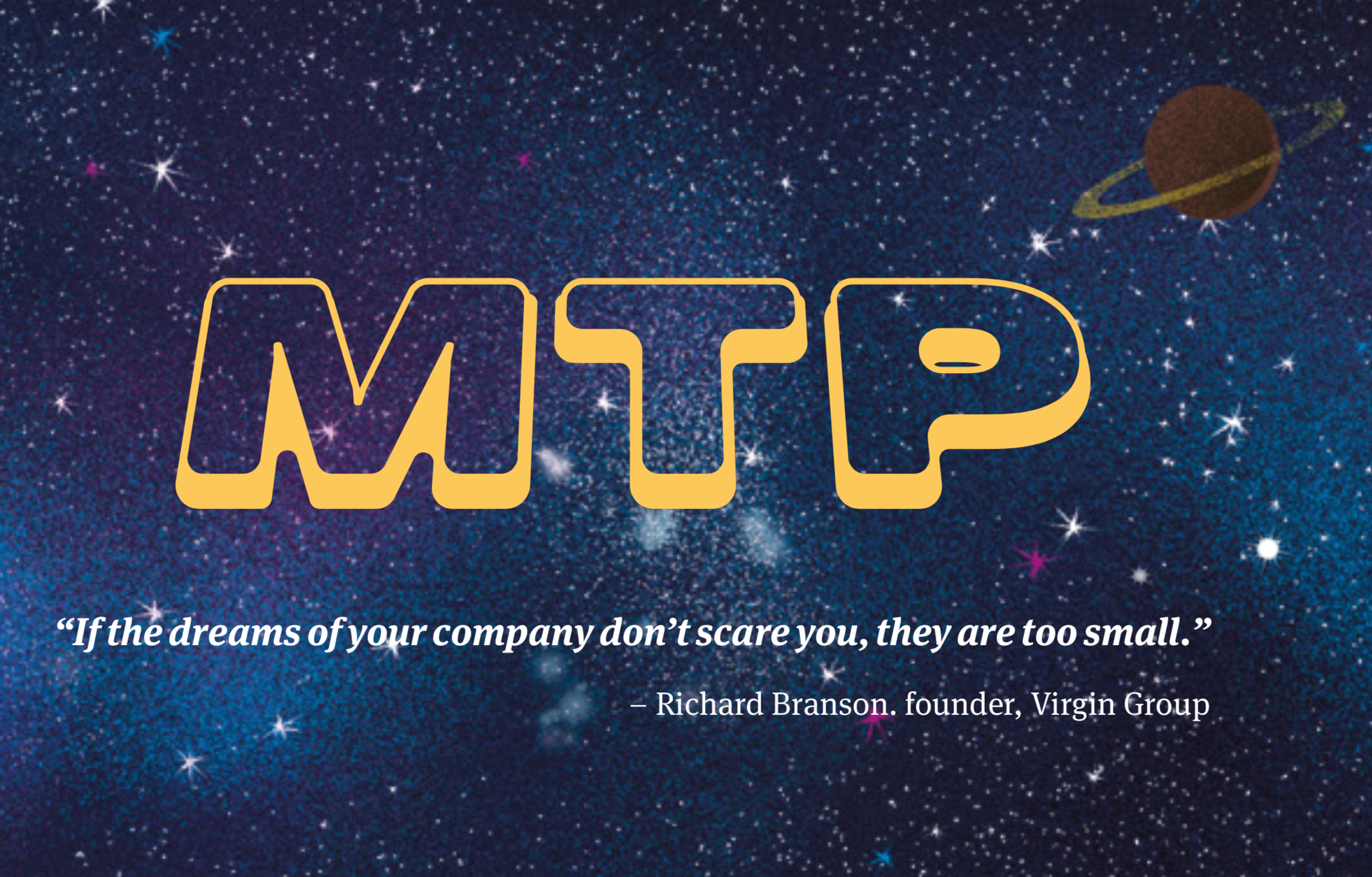
The Business Case for Purpose
Leaders need to constantly assess how purpose can guide strategy, and they need to be willing to adjust or redefine this relationship as conditions change. That demands a new kind of sustained focus, but the advantages it can confer are legion.
I have been doing research on purpose lately. It is amazing to me that something, that to me, seems so light and fluffy can have an impact on business. But it does!
This blog which was first published here will contain a summary of the research I found and will also have a link to the source if you would like to read it in full.
It all started when I read this blog written by Chipp Norcross - “Is purpose a company’s best protection against disruption?”
Chipp realized that companies that have been disrupted in the past were not thinking broadly enough about the service they were providing their customers.
He argues that if a company has a purpose that they are striving for that they will at not only providing their current service but also look at other ways of meeting a customer's needs.
Within this blog Chipp references the research done by HBR and EY titled “The business case for purpose”.
Chipp writes within the blog:
“For many years, my advice to senior executives has been to focus on clarity of purpose before beginning any digital transformation or other significant strategy and innovation work. The research in this EY study just further bolsters that perspective and adds some further ammunition and nuance to the discussion.”
“The global survey of 474 executives found that although there is near-unanimity in the business community about the value of purpose in driving performance, less than half of the executives surveyed said their company had actually articulated a strong sense of purpose and used it as a way to make decisions and strengthen motivation. Only a few companies appear to have embedded their purpose to a point where they have reaped its full potential.”
Interesting findings from the research to me were:
Companies fall into three categories when it comes to purpose:
- Prioritizers: 39% of companies' surveys had a clearly articulated and understood purpose.
- Developers: 48% said that some parts of the company understood their purpose more than others.
- Laggards: 13% had a purpose that was not understood or well communicated.
The research showed that companies in the prioritizer category were more likely to have growth of over 10% in the past three years, 66% had expanded their companies into other territories, launched more products, and there was a clear link between purpose and the ability to innovate and transform.
It also showed that prioritizes of purpose also were more likely to adopt new business models, positively impacted their society/community, provided employees with a sense of meaning, and contributed to a sustainable world.
The research concluded with this:
“This research underscores the challenges companies face and the benefits companies see when they make purpose a priority. The survey results suggest that prioritizers’ firms have grown and transformed more vigorously than their peers’. Executives at purpose-prioritizing companies believe that their customers are more loyal and their employees more engaged. They see themselves as market leaders with a brighter future than their competitors. And they indicate that they are reaping major rewards for their efforts. They also indicate that they will continue working to embed purpose across their organizations.”
This lead me to search for other research EY has done on purpose and I found two other interesting articles.
The first is Ten ways leading companies turn purpose into strategy - EY
What I really like about this article is that it takes the theory of purpose and applies it practically to how companies are using it as part of their strategy.
The ten ways are:
- Make leadership buy-in a starting point, not a finish line
- Use purpose as a decision-making filter
- Drive purpose beyond culture and into strategy
- Measure purpose, but don’t over-measure it
- Don’t confuse purpose with CSR
- Position purpose as a North Star, not a to-do list
- Bring purpose to life with stories
- Lean on purpose during good times, too
- Accept that purpose is not always a win-win
- Celebrate your successes — and acknowledge your shortcomings
The article concludes with this statement:
“The question for businesses today is not 'why' purpose matters, but 'how' they can embed purpose at the heart of their strategy and decision-making.”
The second is Why business must harness the power of purpose - EY
This article starts by saying that for an increasing number of businesses, and their employees, the pursuit of profit is not longer enough.
The article is divided into the following chapters
- What is purpose and why do we need it?
- 6 reasons why purpose is becoming more important.
- Purpose pays
- Using purpose to enable success
- Strategic clarity
- Innovation
- Transformation
- Human nature
- Building bridges
The article concludes with this summary:
“A sense of purpose should be at the center of a company’s strategy for growth.”
The next article is from Harvard Business Review: Put Purpose at the Core of Your Strategy - HBR
The article starts with this exciting statement:
“Companies have long been encouraged to build purpose into what they do. But usually it’s talked about as an add-on—a way to create shared value, improve employee morale and commitment, give back to the community, and help the environment. But as we worked with the high-growth companies in our study and beyond, we began to recognize that many of them had moved purpose from the periphery of their strategy to its core—where, with committed leadership and financial investment, they had used it to generate sustained profitable growth, stay relevant in a rapidly changing world, and deepen ties with their stakeholders.”
Here is the outline of the article (which will hopefully encourage you to read it in its entirety):
- Two critical roles
- Role 1: Redefining the playing field
- Role 2: Reshaping the value proposition
- Developing a purpose
- Implementing a Purpose-Driven strategy
- Benefits on the soft side
The article concludes in this way:
“The approach to purpose that we’re recommending cannot be a one-off effort. Leaders need to constantly assess how purpose can guide strategy, and they need to be willing to adjust or redefine this relationship as conditions change. That demands a new kind of sustained focus, but the advantages it can confer are legion.”
The last article on purpose that I would like to bring to your attention is actually a slide put together by a company called Purpose+.
Purpose business case - Purpose+

This is an excellent reference to quickly see the benefits of purpose across productivity, innovation, brand engagement, risk management and profitability in the long run.
So as you can see there is a case for purpose in business so what is stopping you from developing your Massive Transformative Purpose?
This article was featured on the OpenExO blog on February 27, 2020.

ExO Insight Newsletter
Join the newsletter to receive the latest updates in your inbox.









